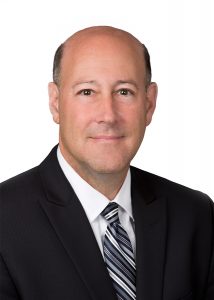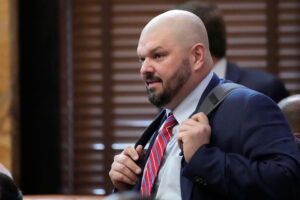Thousands of Mississippians significantly behind on their mortgage payments have still yet to take advantage of the CARES Act forbearance program, set to expire in only two weeks on June 30. Enrollment in the program provides homeowners with up to a year of protection against foreclosure, with very few restrictions and requirements to qualify and apply.
Any homeowner with a Federal Housing Administration-insured mortgage who is currently behind on their payments, or is at risk of falling behind, should immediately contact a Housing and Urban Development-approved housing counseling agency. A list of free, certified agencies is available by calling 800-569-4287 or visiting www.hud.gov/housingcounseling. No proof or documentation of hardship is necessary to receive foreclosure relief through the program, but the application process must be started before June ends.
HUD Office of Housing Counseling Deputy Assistant Secretary David Berenbaum spoke with the Mississippi Free Press on June 12 to discuss the urgency needed to enroll Mississippians struggling to pay their mortgages during the late stages of the pandemic. “COVID forbearance is a very straightforward, very simple process. It gives consumers six more months, and then ultimately up to a year to return to normalcy,” he said.
Mississippi’s 3,508 residents that are now far behind on their mortgage payments are among 325,000 homeowners in similar positions across the U.S. Berenbaum stressed that many Mississippians belong to a cohort at particular risk during times of severe economic stress.
“Individuals who earn less than $50,000, low-to-moderate-income consumers, who are African American or Latino make up a large part of the cohort that we’re looking at here. That’s why it’s important that we connect Mississippians to their servicers or local counseling groups within the state,” he explained.
HUD-approved counseling agencies are capable of providing additional services beyond setting homeowners up with mortgage forbearance. Agencies may also reach out to the mortgage servicer to explore options for keeping residents in their homes, through changing the mortgage’s term, or altering interest rates.
Just as importantly, counseling agencies can provide a barrier between homeowners, the government and above all else mortgage servicers, whom consumers may not trust thanks to their vested interest in capitalizing on the mortgage.
“We’re sensitive to the fact that many consumers—quite candidly, because of life experience or thinking back to the financial crisis of 2008—who simply distrust mortgage servicers,” Berenbaum said. “There are many who are nervous, or because of cultural issue don’t want to engage with government or mortgage servicers.”

Berenbaum pleaded with homeowners to use HUD-approved housing counseling services only, warning that outside HUD’s voluminous list of approved agencies, scams intended to take advantage of fearful homeowners abound.
“Unfortunately, there’s also a lot of scams that are emerging again. That happened during the financial crisis, and we see them happening again right now. So we see signs on the road with (fraudulent) ads, saying ‘don’t lose your home, we can help,’ offering refinances or to buy property. Mostly, these scams are unscrupulous people stepping in,” Berenbaum said.
HUD Public Affairs Specialist Gloria Shanahan, also present for the call, added that any offers from individuals representing themselves as housing counselors but demanding a fee for assistance should be treated as fraudulent.
“A HUD-approved housing counselor will not charge you,” Shanahan said.
Often, however, it is mortgage servicers and debt collectors themselves who take advantage of homeowners, not merely opportunistic intermediaries.
“There are so many stereotypes—and real-life situations—where debt collectors have crossed the line. Also, there’s a lack of financial education and information about mortgages across our country, you know?” Berenbaum lamented. “We as a nation could be doing so much more to educate our consumers to their choices and options.”
Berenbaum hopes that the program will continue the slow, difficult process of rebuilding consumer trust in U.S. institutions utterly wrecked by the subprime mortgage crisis—a tall order, even in generous terms.
“Across the board, most Americans, unfortunately, have a real feeling of mistrust towards our financial institutions. This is a driver of why some consumers may or may not be seeking assistance,” he said. HUD’s role, he added, is to meet homeowners where they are.
Individuals struggling to afford mortgage payments who miss the June 30 deadline should still reach out to a HUD-approved housing counselor. Options remain for forbearance, even if they are significantly less forgiving or easy to apply for.
Americans in need of mortgage assistance have dwindled from pandemic peaks of over 2 million this time last year, but Berenbaum and HUD now have only a matter of weeks to find assistance for the hundreds of thousands of Americans—including thousands of Mississippians—still falling behind.
“The immediate thing that will happen is, first and foremost, the financial stress of receiving collection letters, or worrying about your monthly mortgage payment will be removed for at least six months, and up to a year,” Berenbaum said.
“We hope this prompts people to take advantage of this opportunity,” he said. “The time is now.”










